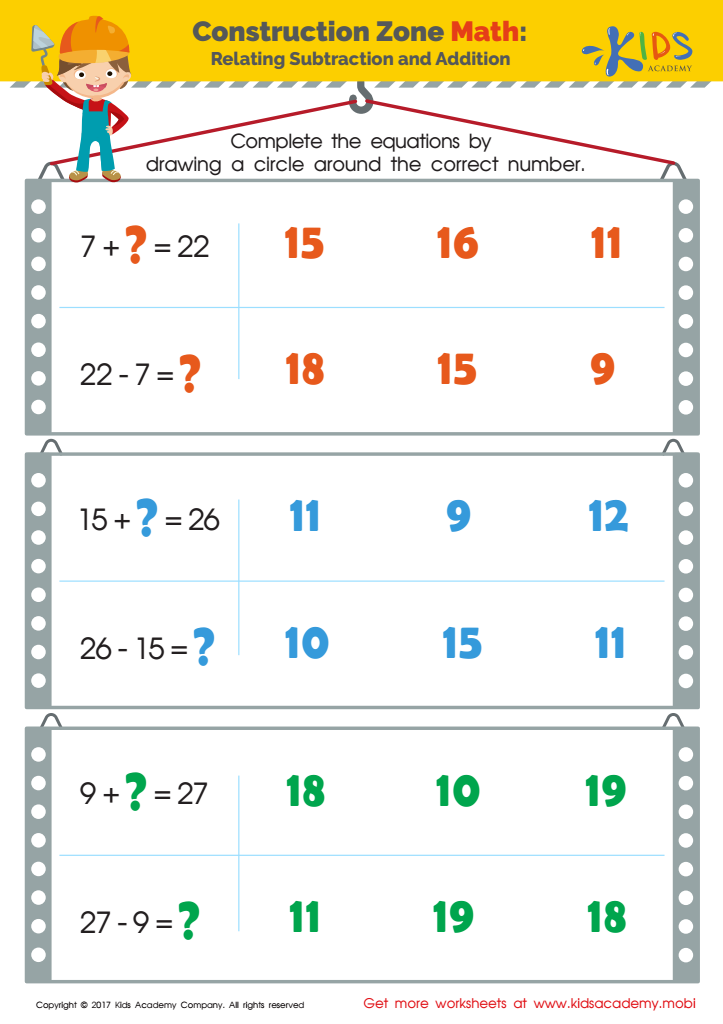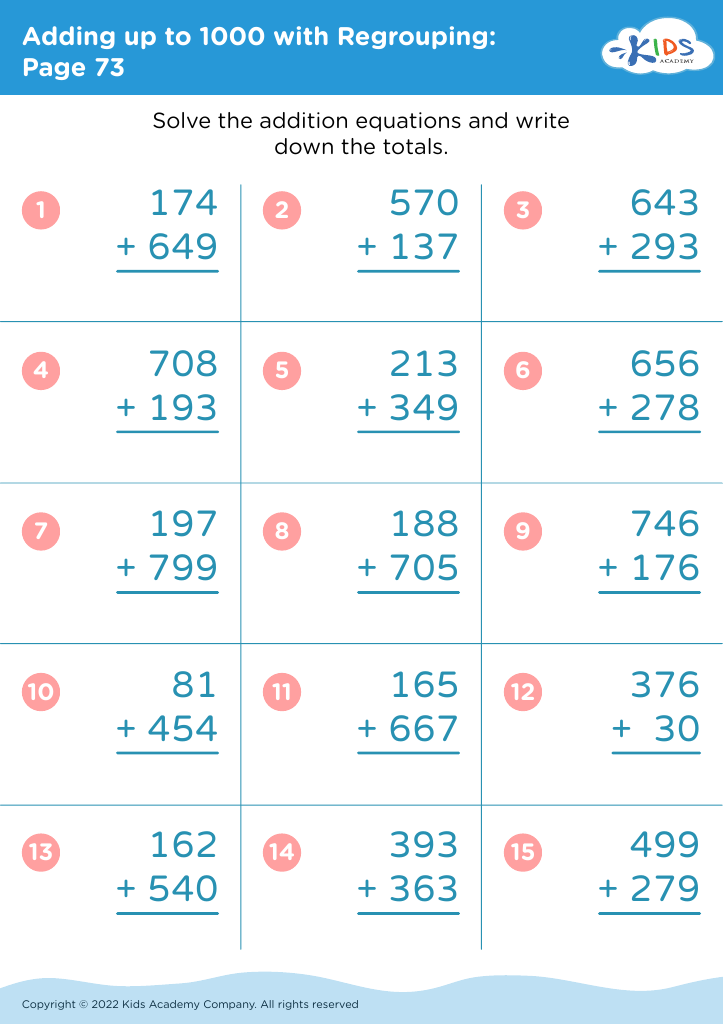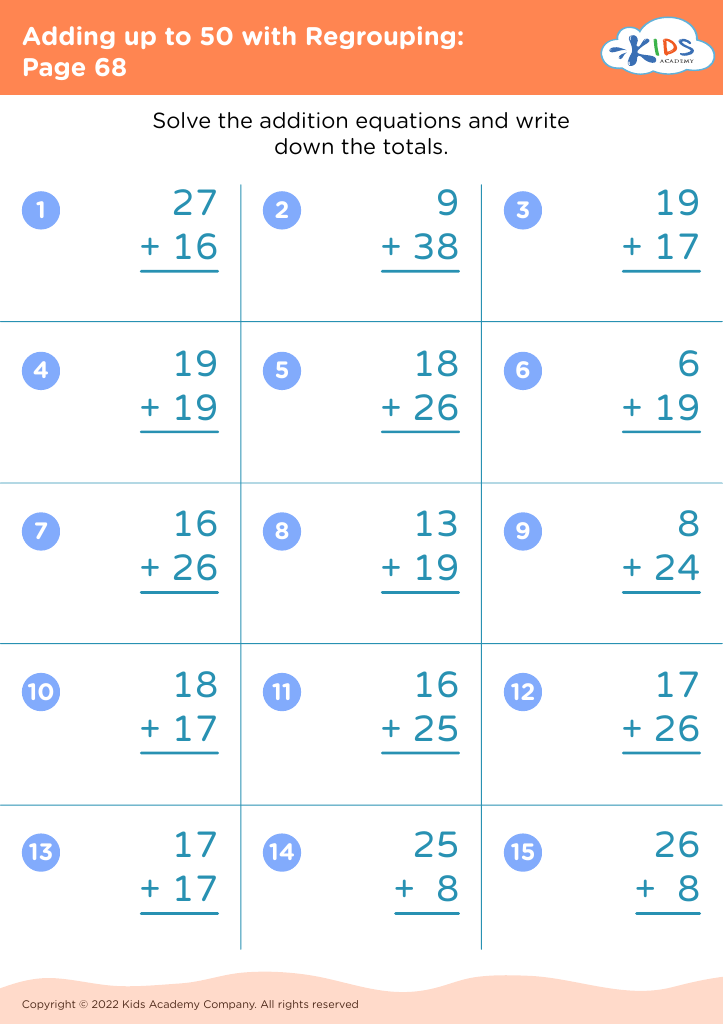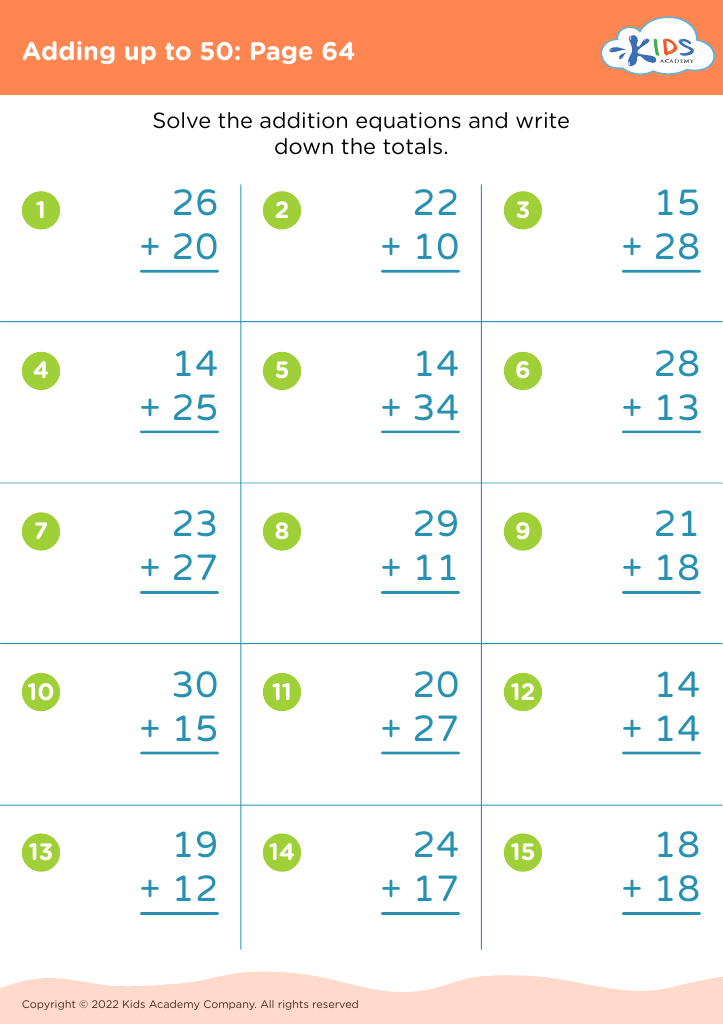Developing logical thinking Addition & Subtraction Worksheets for Ages 3-8
4 filtered results
-
From - To
Enhance your child’s logical thinking skills with our engaging Addition and Subtraction Worksheets designed for ages 3-8! These interactive resources provide a fun, hands-on approach to basic math concepts, helping young learners grasp addition and subtraction while fostering critical thinking. With visually appealing exercises tailored for early grade students, our worksheets encourage problem-solving and logical reasoning across varying difficulty levels. Parents and educators can easily incorporate these materials into daily learning routines, making math both enjoyable and educational. Start nurturing your child's foundational math skills today and watch them grow confident in their logical thinking abilities!


Related Addition and Subtraction Facts Worksheet
Developing logical thinking skills in addition and subtraction for young children aged 3-8 is critical for several reasons. First, these foundational math skills are essential for academic success in later grades. Early mastery of addition and subtraction lays the groundwork for more complex mathematical concepts, such as multiplication, division, and problem-solving.
Furthermore, logical thinking nurtures critical reasoning abilities. It allows children to approach problems systematically and develop strategies for finding solutions. This cognitive framework extends beyond math; it enhances decision-making skills, promotes creativity, and supports overall cognitive development.
Parents and teachers also play a vital role in fostering a positive attitude towards mathematics. By introducing addition and subtraction through engaging activities such as games, storytelling, and hands-on experiences, they can help children see math as enjoyable rather than intimidating. Collaboration between parents and teachers in reinforcing these skills creates a consistent learning environment that encourages exploration and curiosity.
Ultimately, investing time in developing logical thinking for addition and subtraction not only equips children with essential numeracy skills but also contributes to their overall cognitive and emotional growth, setting them on a path to lifelong learning and success.




 Assign to My Students
Assign to My Students
















